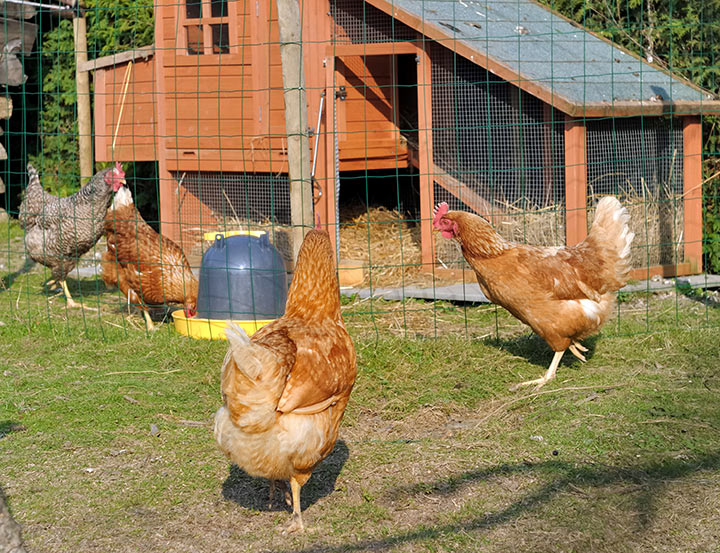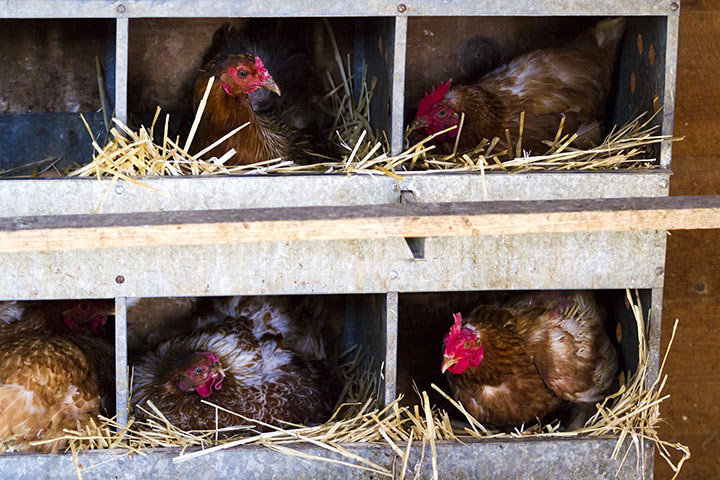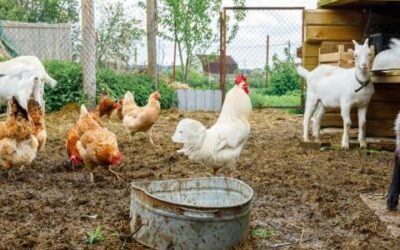The Straight Poop on Odor Control
 If the noxious fragrance of your morning egg collection provides a jolt that negates the need for morning coffee, you’re contending with a less-than-fresh coop. Coop smell is an issue most chicken owners tackle at one time or another. It’s not just an annoyance — coop smell is also a health issue. So be thankful for that telltale scent. It’s a sign your coop management techniques need a tweak.
If the noxious fragrance of your morning egg collection provides a jolt that negates the need for morning coffee, you’re contending with a less-than-fresh coop. Coop smell is an issue most chicken owners tackle at one time or another. It’s not just an annoyance — coop smell is also a health issue. So be thankful for that telltale scent. It’s a sign your coop management techniques need a tweak.
Here’s what’s behind the challenges of keeping a healthful environment that doesn’t fowl — er, foul — the air.
Ammonia
A chicken’s excretion is rich in nitrogen, and when it becomes wet it produces ammonia, which creates the pungent smell of an ailing coop. Eliminating ammonia is at the center of odor control. Ammonia stinks, sure, but breathing it can pose serious respiratory health concerns to all living things in and around the coop. The rule of thumb is any ammonia smell is too much and a sign to seek out odor management techniques that will up your game when it comes to moisture absorption, ventilation, and odor neutralization and capture.
Moisture Absorption
When water mixes with droppings, it creates an ammonia smell. In the coop, moisture control can be a constant challenge. Humidity, water from founts, spills, damp hay, piling bedding, tracked-in mud or even an egg break contributes to moisture in the coop triggering the smell. Regular cleaning is the best defense. If you need more enhanced methods, dehumidifiers in the coop can be a worthy investment, and in some cases simply better ventilation (see below) will do. Reducing moisture can be as simple as using nesting boxes that allow air to flow beneath them, and ensuring you have the correct balance of droppings to shavings if you are using the deep litter method.
What Level of Ammonia is Unsafe?
Chicken experts agree that any amount of ammonia smell in the coop is too much. Here’s the straight poop on how much is too much when it comes to our health:
The Occupational Health and Safety Administration says humans start to smell ammonia between 5 and 50 parts per million (ppm). If you open the door to your chicken coop and smell ammonia, it’s safe to say the ammonia level is way beyond 10 ppm, which is when ammonia starts to negatively affect the health of your birds. At 25 ppm and above they will experience respiratory damage.
Courtesy of Backyard Poultry
Ventilation
Cutting moisture is crucial, and fresh air goes a long way to toward moisture control and ammonia vaporization. Vents in the coop will provide needed ventilation – put them at the highest point possible, above any chickens. Be cautious about those natural vents — cracks in a coop may help with stagnant air but be dangerously cold in the winter. Consider adding windows to your coop if you don’t have them (add that inside chicken wire for protection from predators). Fans go a long way toward circulating air and mitigating summer heat. Keep them mounted and running low — there are many options, including solar, on the market.
Optimize Your Bedding — The Ultimate Coop Hack

Yay science: odor neutralization and capture can be achieved through bedding and coop applications in ways straight hay or straw just can’t achieve. Today’s blends incorporate natural, hard-working ingredients that combat moisture and smell. Look for products with effective odor absorption such as the mineral zeolite that absorbs moisture and traps ammonium before it vaporizes and causes odor. Some products also serve as quality grit that provides calcium required for the chicken’s diet. Make sure bedding is safe and has no chemicals or masking perfumes. Organic and all-naturally grown and produced bedding is good for the earth as well — choose those that are recyclable and enhance nutrients in the garden when it’s disposed of — you’ll enjoy the added benefit of enriching your home and farm’s healthful cycle.




